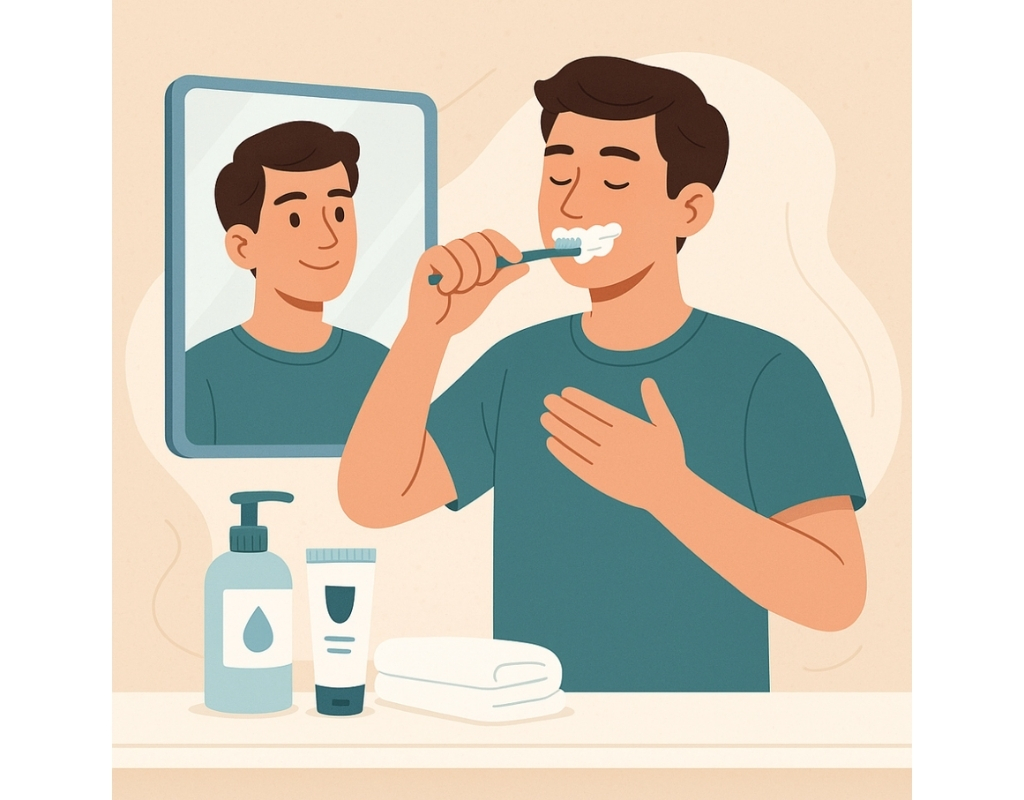HYGIENE BEYOND CLEANLINESS
A RITUAL FOR SELF-RESPECT

Hygiene is often perceived as a mere practice of physical cleanliness, but in reality, it goes far beyond that. Have you ever wondered if people would respect or like you in the same way if you were the dirtiest person around them? The immediate answer is a clear no. So why should we always think from others’ perspectives when we can evaluate and improve ourselves for our own good?
Being hygienic is not a tedious task. Amidst life’s hustle and bustle, taking a little time for personal cleanliness can make a world of difference. Hygiene is not just about maintaining physical well-being; it is closely linked to mental health, spiritual balance, self-esteem, and self-respect.
How Hygiene Contributes to Self-Respect and Self-Confidence
Self-respect simply reflects how we value ourselves, and this can be judged by the actions we take to care for our body and mind. By staying healthy, maintaining hygiene, and cultivating gratitude, we demonstrate that we truly value ourselves. Our body and soul are precious gifts from God, and it is our responsibility to nurture them with care.
Neglecting hygiene often results in infections, illnesses, low self-esteem, and diminished confidence. People who do not take care of their cleanliness are more prone to being emotionally withdrawn and socially avoided. Let’s be honest—no one wants to be disliked or avoided just because of poor hygiene. People remember us by the aura we carry, and maintaining hygiene is not about pleasing others, but about respecting ourselves.
No one enjoys being around someone unhygienic, and such circumstances inevitably hurt one’s self-esteem. On the other hand, staying clean and fresh creates a win-win situation: you feel confident, and others feel comfortable around you. Allowing unhygienic habits to push people away is essentially disrespecting yourself. This self-neglect diminishes confidence, sometimes even leading to social withdrawal.
Even simple practices can transform our mental state. For instance, after a hectic day, taking a five-minute bath can relax the body, refresh the mind, and uplift the spirit. In this way, personal hygiene becomes a direct contributor to mental and emotional well-being.
From childhood, we were taught to brush twice daily and wash our hands frequently. These practices weren’t just about preventing illness but about instilling lifelong habits of self-care and self-respect. Scientifically speaking, the skin—our body’s largest organ acts as the first line of defense against infections. Exposed daily to allergens and harmful agents, it requires cleanliness to remain healthy and protective. Without it, we risk illness and needless medical struggles.
Hygiene as a Shield for Confidence and Social Presence
Hygiene serves as an armor, shielding us from low self-esteem and insecurity. It strengthens our ability to approach social situations with confidence. When we feel fresh and clean, we are more comfortable around others, more socially active, and more likely to be respected. Ultimately, valuing our hygiene means valuing ourselves—and this reflects in the way the world values us in return.
In conclusion, hygiene enhances not only our physical health but also nurtures our mental and spiritual well-being. It is a simple yet powerful tool that boosts self-respect, self-confidence, and the way we connect with the world.

Hands United for Lifelong Aid and
Human
Upliftment Lever Foundation
Since 2012
ALL CONTACTS
-
Registered Office:
1/5 Parel Shivshandesh CHSL., Kasturba Gandhi Nagar, LR Papan Marg, Worli, Mumbai 400018. -
Branches:
Worli, Charni Road, Kalyan, Pune - +91-8082376061 , +91-8369001611
- hulahulgrp@gmail.com
SUPPORT US
If you wish to contribute to our mission, you can make a donation via bank transfer to the following account:
Bank Details
Name: HULAHUL Foundation
Bank: IDBI Bank
Account Number: 0026104000273299
IFSC Code: IBKL0000026
Branch: Prabhadevi


Leave a Reply